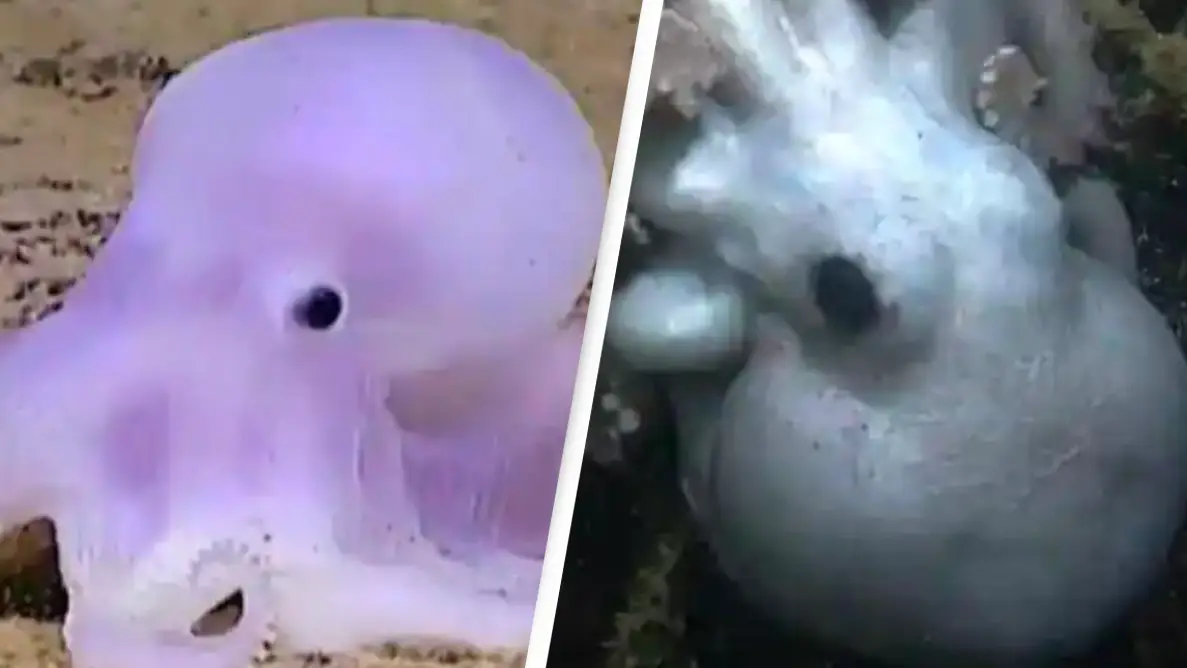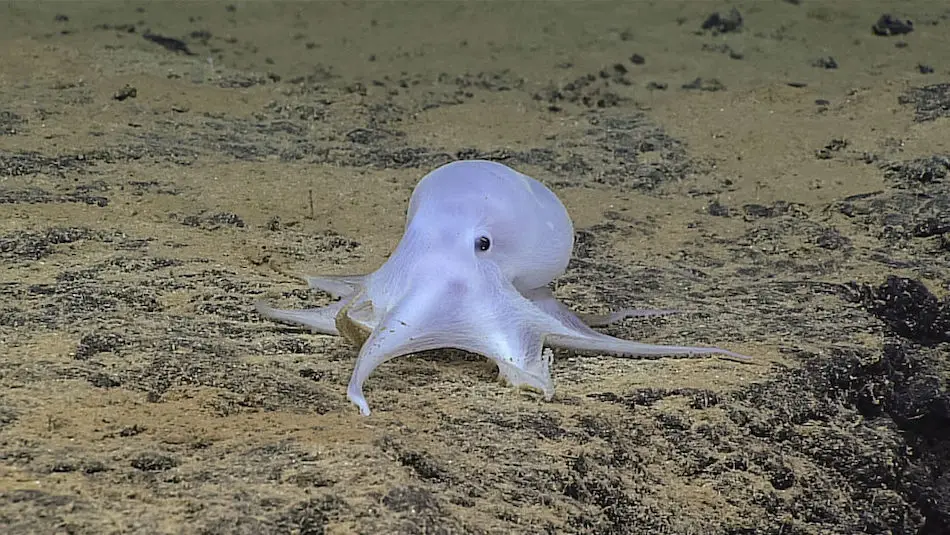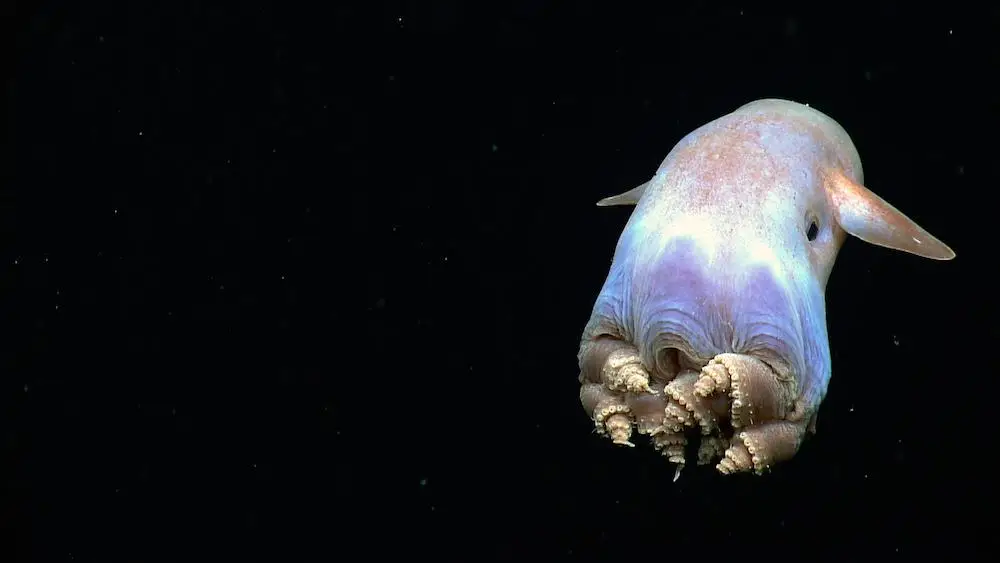
Scientists have made discoveries about what they believe could be a new species of octopus, and it has a ghostly appearance.
The white, short-legged octopus was first spotted in 2016 off the coast of Hawaii at a depth of 2.6 miles using a deep-sea robot with cameras to explore the ocean’s seabed.
Incredible footage shared by the NOAA Ocean Exploration showed the results of the expedition, saying the ghostly eight-legged mollusc confused shore-based scientists as they had never seen anything like it before. Check it out:
Advert
Thanks to its pale, white complexion and bulbous head, they nicknamed the animal Casper.
At the time, the NOAA said: “Upon further review, this ghostlike octopod is almost certainly an undescribed species and may not belong to any yet-described genus.”
Up until this point, the only other cephalopods captured on camera at these depths were Dumbo octopuses, which were similarly named after a cartoon.
The reason for the moniker is because of their distinct ear-like fins which extend from the top of their heads.
As for Casper, a number of questions were raised about the potential new species, with Janet Voight – associate curator of invertebrate zoology at the Field Museum of Natural History in Chicago – recalling that it was ‘totally new and different’.

Firstly, most coleoid cephalopods including octopuses have multicellular organs that can change colour rapidly with bright colours and patterns in order to protect them from prey.
Discussing why Casper appeared to be so pale and colourless, Voight suggested that it could be down to a lack of pigments in its food caused by an absence of light in the ocean’s depths.
Another perplexing characteristic is Casper’s short arms, although Voight explained: “The shallower and more tropical you are, the longer and thinner your arms.”
She suggested that shorter arms in deep-sea octopuses could be an evolutionary trait that arose from the animals using their bodies more prominently than their arms to catch prey, although this has never definitively been proven.
While people were left baffled by the discovery in 2016, according to The Guardian, new details have been uncovered about the so-called ghost octopus after researchers analysed five years of archived footage taken on deep-sea surveys across the Pacific.

They were amazed to come across dozens more creatures that look like Casper on the seabed from what they believe to be two distinct species.
“It could be that they’re fairly common,” explained Voight. “It’s just an indicator of how little we know about what’s down there.”
Until they can officially name and identify the ghost octopus, Casper will remain as big a mystery as the supernatural, with Voight adding: “With an octopus, you really need it in your hand.”
If you have a story you want to tell, send it to UNILAD via [email protected]
Topics: Animals, Science, World News